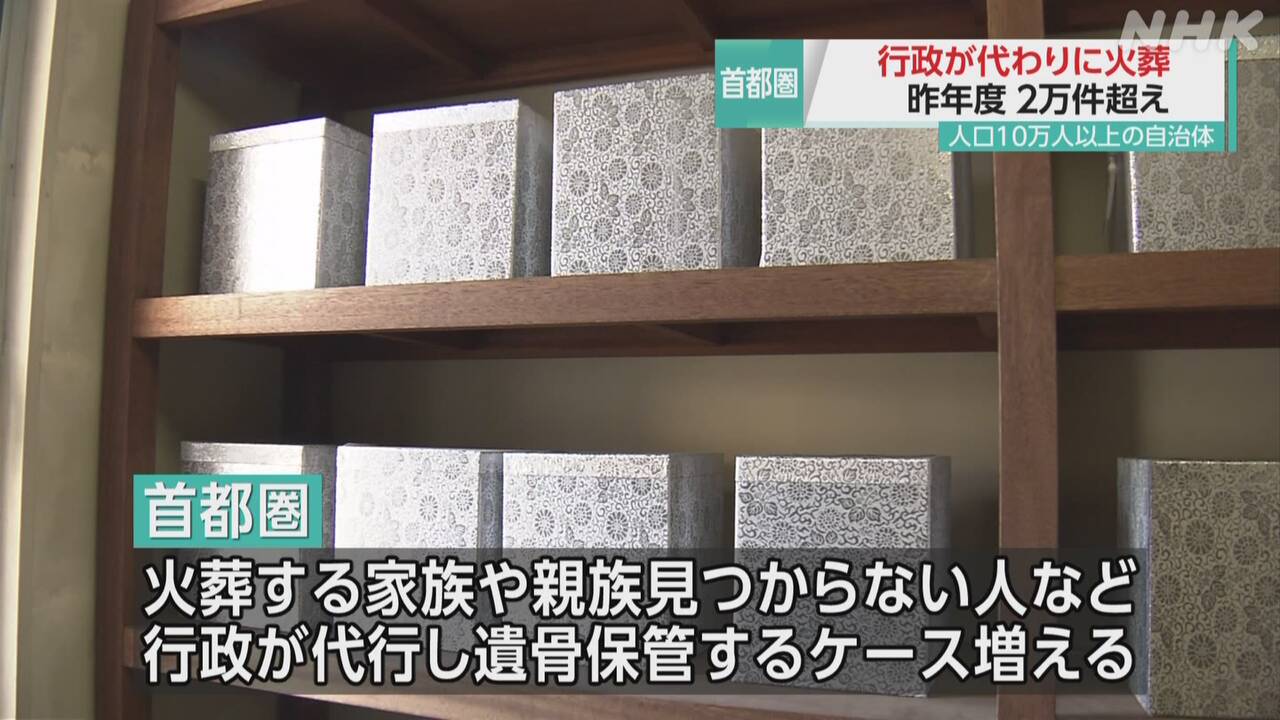In municipalities with a population of 100,000 or more in the Tokyo metropolitan area, the number of cases in which the government cremates people who have no relatives or whose identities are unknown is increasing, with a total of more than 20,000 cremations in fiscal 2022 and 2022, according to an NHK survey. I understand.
This means that approximately one in 15 people who died in a year was cremated by the government.
In recent years, in the Tokyo metropolitan area, there has been an increase in the number of cases in which the government cremates the remains of people who have passed away and cannot find family members to cremate the cremated remains.
Therefore, from January to February this year, NHK will provide 93 wards and cities with a population of 100,000 or more in Tokyo, Kanagawa, Saitama, and Chiba prefectures with cremation services at their expense, on behalf of their families and relatives. We asked about the number of cases and received responses from 89 wards and cities.
As a result, last year there were a total of 21,227 cases, the highest number in the past five years.
This is 6.7% of the people who died in these wards and cities last year, or about 1 in 15 people.
Looking at each prefecture
, Tokyo has the highest rate at 8.3%,
followed by
Kanagawa at 6.9%
, Chiba at 4.9%
, and Saitama at 4.1%.
Professor Tadayoshi Suzuki of Nagano University's Faculty of Social Welfare, who is familiar with the current state of government-managed cremation, says, ``This is due to problems such as weakening of relationships between families and financial burden.It is expected that the number of cremations will continue to increase in the future.''
In some cases, a claimant for the remains cannot be found.
In Ichikawa City, Chiba Prefecture, the number of cremations reached 271 last fiscal year.
In many cases, funerals are not held, and the body is cremated at a funeral hall in the city with city officials present.
If the identity of the deceased is known, the family register is investigated and a request is made to a child or sibling to collect the remains, but in many cases no claimant can be found.
Today, the city still stores the remains of more than 160 bodies, some of which have remained there for several years.
In Ichikawa City, remains are stored for five years, and if a claimant is not found, they are placed in a cemetery for unrelated persons in the city's cemetery.
Mutsumi Kaiho, head of the Ichikawa City Life Support Division, says, ``I get the impression that the traditional Japanese mourning system is collapsing.If things continue as they are now, I think cases like this will increase.'' .

